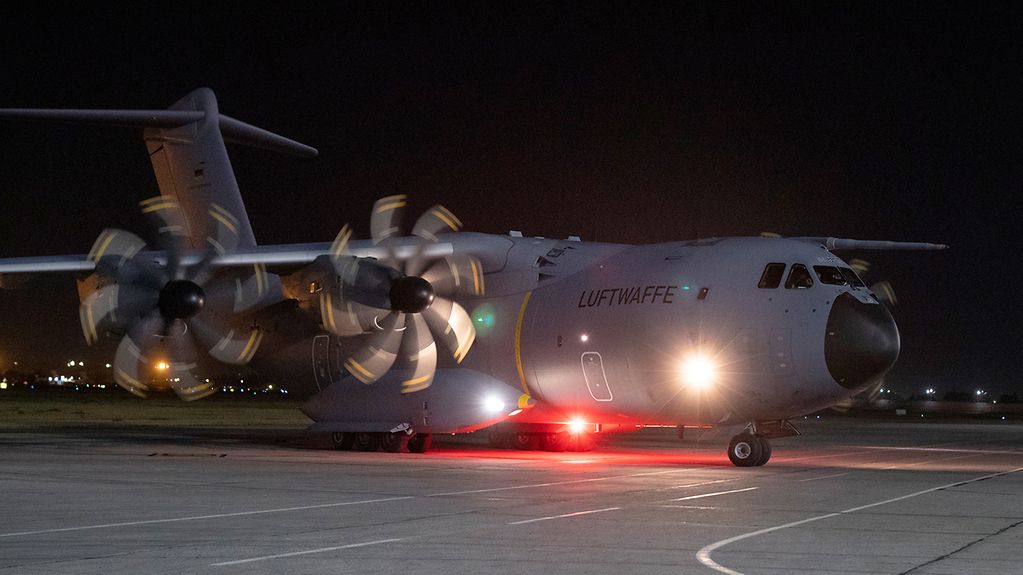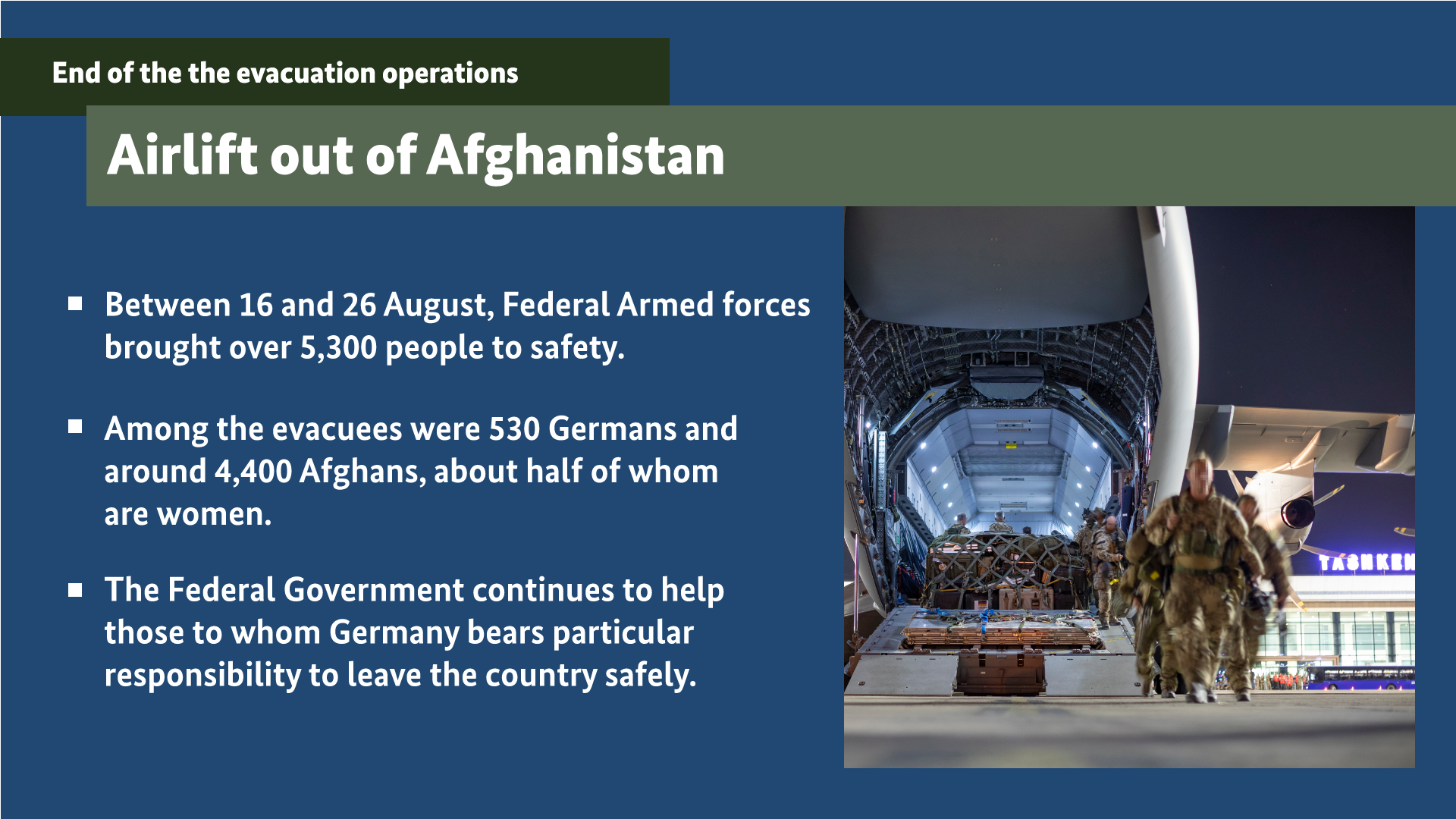Afghanistan
Despite dangerous conditions, the Federal Armed Forces succeeded in bringing more than 5,300 people to safety out of Kabul in recent days. Even after the conclusion of the military airlift, the Federal Government is continuing to work to bring those seeking protection to safety.
2 min reading time

The arrival last night in Tashkent of a Federal Armed Forces Airbus marked the end of the Federal Government evacuation airlift from Kabul
Photo: Bundeswehr/Marc Tessensohn
“We are ending the airlift today,” said Federal Chancellor Angela Merkel on Thursday evening, adding that Germany was undertaking intensive negotiations to identify how people could continue to leave the country. The Federal Government would continue to help those in Afghanistan to whom Germany bore particular responsibility to leave the country safely, Merkel said.
Since 16 August, the Federal Armed Forces airlift has evacuated over 5,000 people from Kabul, including over 530 German nationals and around 4,400 Afghans. In addition to these, over 360 citizens from EU and other countries have been brought to safety, while other partners flew out dozens of German citizens.

The efforts to bring more particularly vulnerable people out of the country are ongoing even after the conclusion of the airlift.
The title of the image is: Airlift out of Afghanistan. Underneath it says: Between 16 and 26 August, Federal Armed forces brought over 5,300 people to safety. Underneath it says: Among the evacuees were 530 Germans and around 4,400 Afghans, about half of whom are women. Underneath it says: The Federal Government continues to help those to whom Germany bears particular responsibility to leave the country safely.
Photo: Bundesregierung
Providing local assistance
Discussions are taking place on continuing civilian operations at Kabul airport, with the goal of providing further evacuations using non-military aircraft. Another issue is to create the conditions whereby evacuees who have crossed land borders into neighbouring countries can be brought to Germany quickly and simply.
German embassies in neighbouring countries will issue entry documents quickly and simply to former local staff and other at-risk individuals whom Germany has confirmed it will take in. Embassies will be provided with extra resources to this end. On Friday, Federal Foreign Minister Heiko Maas held a reception for staff from his ministry who have worked on the evacuations from Afghanistan, thanking them for their commitment under “extremely challenging and highly dangerous conditions”.
Financial support
The Federal Government has also increased funding by 10 million euros for existing programmes that support particularly vulnerable representatives of Afghan civil society groups, science, the arts and human rights organisations. These funds will provide temporary safe accommodation and scholarships.
Last but not least, Germany is making available 100 million euros of emergency humanitarian aid for refugees from Afghanistan, in parallel with other European Union partners. These funds are to be used to support international aid agencies, including the UNHCR, the International Red Cross and the World Food Programme as they provide aid to refugees in Afghanistan and neighbouring countries.
Following the attack on Kabul airport, Federal Chancellor Merkel sent her condolences to US President Joe Biden: “This was an attack on helpless and innocent people desperately seeking sanctuary, and on those who were seeking to help them and enable them to escape this situation, above all, members of the United States’ armed forces. I wish to express my deepest sympathies with them and with the whole American people,” Merkel said.
Further information can be found on the websites of the ministries concerned: :